International & Area Studies
El Mundo Digital Archive (Puerto Rico): 1919-1990 [Open Access]
I am glad to report that the Center for Research Libraries, in collaboration with Eastview’s Global Press Archive platform, has released the full text of El Mundo newspaper published in Puerto Rico from 1919-1990.
Established in 1919, El Mundo was a well-respected and conservative newspaper hailing from Puerto Rico, widely acknowledged as a prominent news source until its cessation in 1990. The publication diligently aspired to uphold its motto of “Verdad y Justicia” (Truth and Justice). El Mundo extensively covered a range of significant topics, including the industrialization of Puerto Rican society, the impact of the Great Depression, territorial relations with the United States encompassing citizenship, activities of independence movements such as the Macheteros and FALN, the emergence of the Popular Democratic Party, the Ponce massacre, the enactment of the Ley de la Mordaza (Gag Law), and more. In 1986 El Mundo temporarily closed due to a labor strike, which inflicted lasting damage on the newspaper. Despite reopening in January 1988, the publication faced ongoing union difficulties and ceased operations permanently in 1990.
Serials reductions as part of the life cycle
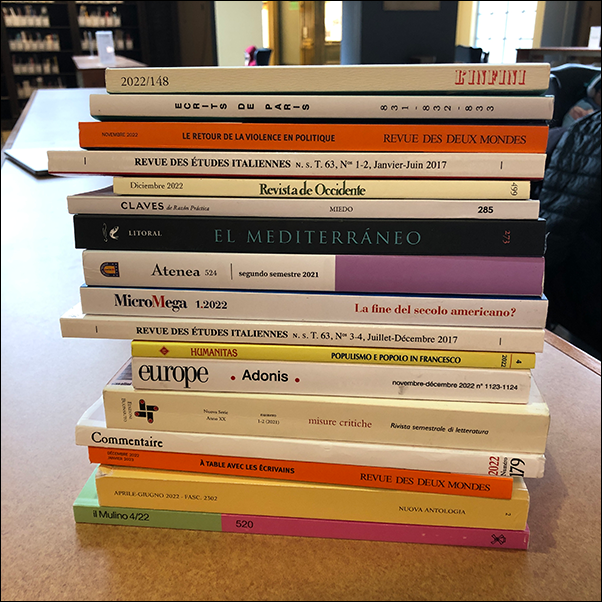
You need not fret about L’Infiniti, Écrits de Paris, Revue des deux mondes, Revue des études Italiennes, Revista de occidente, Claves de razón práctica, El Mediterráneo, Atena, MicroMega, Humanitas, Europe, Misure critiche, Commentaire, Nuova antologia, Il Mulino, and many more journals in the Southern European collection. These have evaded cancellation for now in the second year of a two-year planned reduction of UC Berkeley Library’s acquisitions and licensing budget.
This week, the Library has shared with the campus via CALmessages a complete list of proposed serials cancellations for public comment until May 12. For 2023/24, the budget for recurring annual costs such as subscription databases, journal subscriptions, ebook and journal packages will be reduced by $850K. The Arts and Humanities portion of the serials reduction came to about $165,000. Much of this was met through a renegotiation of the price share for a statewide Taylor & Francis journal package that met about $65,000 of our target. The remaining $100,000 came from the subject funds. (For Latin American and Caribbean Studies, please scroll down to the Social Sciences grouping.)
The proposed list of cancellations was developed to minimize the impact on the community by focusing on duplicative subscriptions; journals and databases that are available open access or in other ways; and the most seldomly accessed journals and databases. Together, subject librarians have reviewed all subscriptions and prioritized retaining titles based on strength of need and available alternatives for access. Across disciplines, the total number of titles came to 1,204 which includes large packages. These ranged from very cheap (Annali di statistica @ $9.67/year) to exorbitant (Greenwire for $17,544/year).
These exercises are never easy but have become a regular part of the scholarly resources life cycle as academic libraries continue to endure rapidly declining budgets for an expanding terrain of expensive intellectual materials in both print and digital formats. The last serials reduction was in 2018 in the amount of $1.5M. At the beginning of this year, the Library reduced its discretionary budget (mostly for books) by $850K and two years earlier by $1M.
Including our recent reductions in 2018 and 2020, this year’s serials reduction will bring the total annual reduction in acquisitions and licensing to $4.425 million – an approximately 35% reduction of campus, state, and unrestricted funding for collections since 2016. Without an influx of funding from the campus and the state, the UC Berkeley Library can expect to see another round of budget cuts in the near future.
For the month of April, I will be posting on Instagram nearly every day the cover of a different journal in the Romance languages that we are retaining access to for now in either print or digital form.
Webinar on March 21st: Ukrainian Publishers and Literary Critics Speak
Ukraine Fights On: One Year Later
Ukrainian Publishers and Literary Critics Speak
In this second event, women publishers and literary critics from Ukraine will update us on the current state of publishing, the different strategies they are using to mitigate the tragic circumstances of their war, and how publishing has evolved since the Russian invasion of Ukraine.
Date: Mar 21, 2023
Time: 9:30 am PDT /12: 30 pm EDT/ 19:30 Kyiv Time
Duration: 1 hr. 15 min.
Language of Event: English.
All are welcome with prior registration.
Link for event registration: http://ucblib.link/ukrainefightson2
Speakers
- Iryna Baturevych co-founded the Chytomo media project (NGO), the largest independent media covering publishing and contemporary literary and cultural processes in Ukraine.
- Anastasia Bilousova is an editor and project manager at the RODOVID Press publishing house in Kyiv.
- Lidia Lykhach is the executive editor and founder of RODOVID Press.
Discussant
Aglaya Glebova is an Associate Professor in the History of Art at the University of California, Berkeley.
Organizer: Dr. Liladhar R. Pendse, Librarian for Slavic, East European, and Eurasian Studies
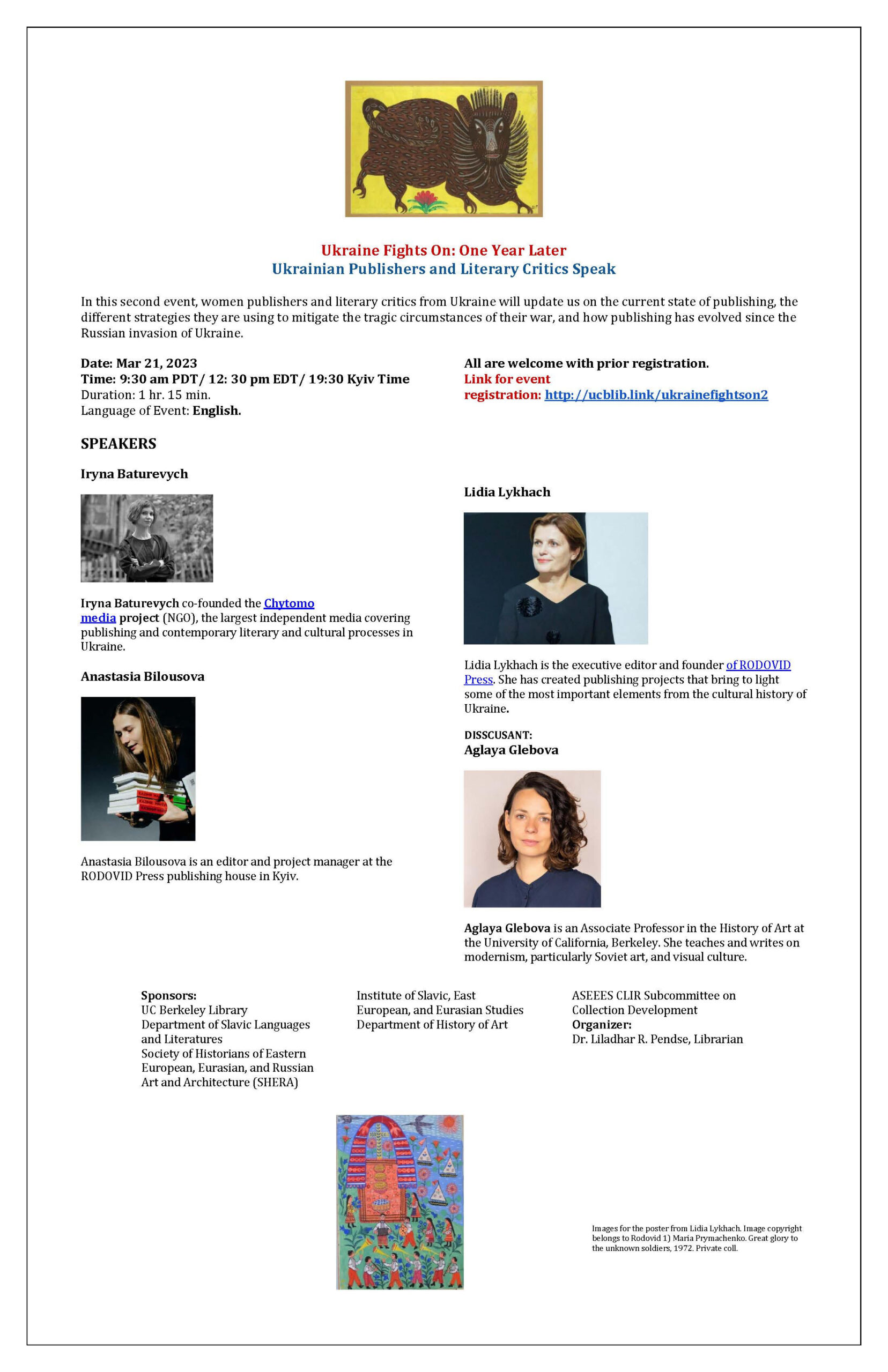
Spring bloom: new ebooks from OpenEdition
It’s that time of year when we choose new ebook titles from OpenEdition. Below you will find a few that have made it to the list. Please send other recommendations to the Librarian for Romance Languages by April 1.
Since 2014, the UC Berkeley Library has supported this initiative based at the Université d’Aix-Marseille to open scholarly content from Europe and France in particular to the world. The Freemium program allows the UC Berkeley community to participate in an acquisitions policy that both supports sustainable development of open access (OA) and that respects the needs of teaching, research and learning communities. With our participation, faculty, students, and other researchers can benefit from greater functionality while making it possible for anyone in the world to view in html and in open access 70% of the ebook catalog of more than 13,000 titles.
Through the Freemium model, UC Berkeley gains access to preferred formats (pdf, epub, etc.) with no DRM quotas and seamless access to the content with UC Library Search.
Armeno-Indica: Four Centuries of Familiarity and Friendship Conference at UCLA
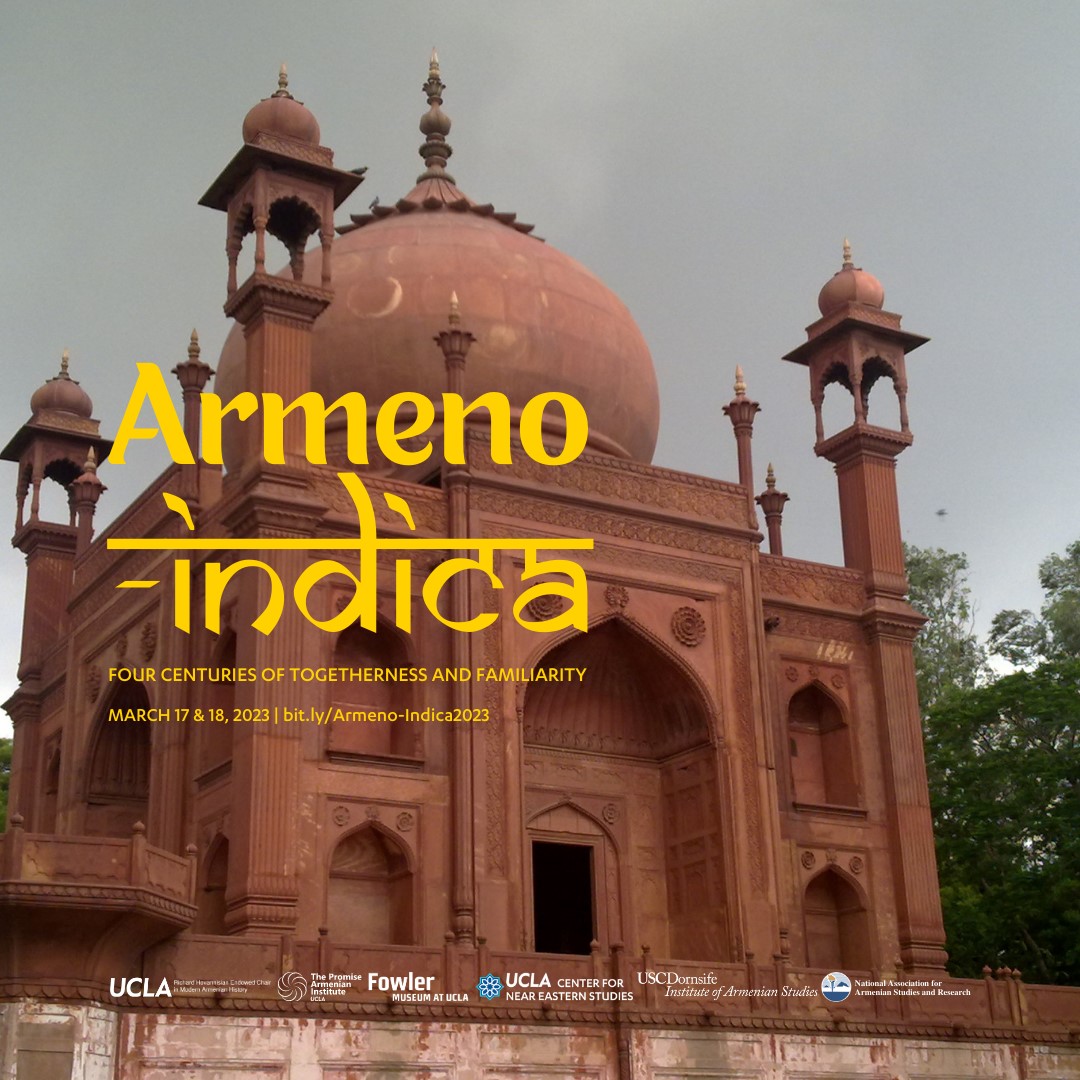
Armeno-Indica: Four Centuries of Familiarity and Friendship
March 17 – March 18
This event is organized by the UCLA Richard Hovannisian Endowed Chair in Modern Armenian History.
Friday, March 17, 2023, | 10:00 AM – 6:30 PM (Pacific Time)
to
Saturday, March 18, 2023, | 11:30 AM – 6:00 PM (Pacific Time)
Postponed due to the pandemic, this international conference celebrates the bicentenary of the founding of Kolkata’s famed Armenian College (est. 1821), one of three centers of Armenian higher learning in the diaspora during the nineteenth century and the only one that has survived and is thriving today. Bringing together economic, literary, legal, and cultural historians from India, Armenia, France, the United Kingdom, Germany, and the United States, the conference highlights how, beginning in the early modern period and continuing to the present, Armenians have traveled to India to make its distant shores and cultures their own. India looms large in the Armenian social imaginary. It was not only the place where the first Armenian proto-constitution for an “imagined” nation-republic was published (Madras 1788/9), it was also the cradle of the first Armenian newspaper (Madras, 1794-1796), the first modern Armenian play (Calcutta 1823), and arguably also where the first Eastern Armenian novel appeared (Calcutta, 1846), as well as where the first Armenian “feminist” tract (Calcutta, 1847) was published.
Gathering an international group of scholars, Armeno-Indica explores the Indo-Armenian saga in South Asia from the seventeenth to the twenty-first centuries. The themes to be explored include the connected economic, literary, legal, and political histories of Armenians and Indians in South Asia and beyond across the waters of the Indian Ocean. The keynote for the conference will be delivered by Professor Sanjay Subrahmanyam.
Please fill out the form for providing RSVP for in-person attendance. The form is located at the following hyperlink: https://sscucla.qualtrics.com/jfe/form/SV_bgcerNdYzuQgRHU
VENUE: UCLA Royce Hall 314 and Fowler Museum
Alternatively, you may attend this conference using zoom with prior. Here is the hyperlink that will lead you to the form that needs to be filled out: http://bit.ly/armenoindica-virtual
Friday, March 17, 2023 (Royce 314, UCLA)
Welcoming words: Amy Landau and Ann Karagozian
(10:00 AM – 10:15 AM)
Introduction to the conference: Sebouh David Aslanian
(10:15 AM – 10:30 AM)
Panel 1: Trade, Law, and Go-Betweens (10:30 AM – 12:30 PM)
Santanu Sengupta (Kolkata): “Negotiating with Law: Phases of Armenian Interaction with the Early Colonial Law Courts in India.”
Xabier Lamikiz (University of the Basque Country /Euskal Herriko Unibertsitatea (UPV/EHU): “Armenian Merchants from Madras in Eighteenth-Century Spanish Manila: A Story of Love and Hate.”
Ruquia Hussain (Aligarh Muslim University, AMU): “Of Sarhad and Calcutta: The English East India Company, Khwāja Israel di Sarhad and the Foundation of Modern Calcutta.”
Sona Tajiryan (Gemological Institute of America, GIA): “How to Choose and Buy Pearls? An Eighteenth-Century Armenian Guide on the Pearl Trade in India (1730s).”
Discussant: Glenn Penny (UCLA)
Lunch Break: Balcony of Royce 306 (12:30 PM – 1:30 PM)
Panel 2: Language and Literary Revival (1:30 PM-3:00 PM)
Ahona Panda (Claremont McKenna): “Ajab Shahar Calcutta: The Outsider in the Bengal Renaissance.”
Talar Chahinian (University of California, Irvine): “Mobilizing Subjectivity in the Practice of the Nation: Tagheadeants‘s’ Case for Women’s Education.”
Peter Cowe (Near Eastern Languages and Cultures, UCLA): “Intertextuality and Innovation: Mesrop Taghiadeants‘ and his Experimentation with the Novel Genre in Comparative Perspective.”
Discussant: Houri Berberian (University of California, Irvine)
Coffee Break: (3:00 PM – 3:15 PM)
Panel 3: Armenian Historiography and Print Culture in Madras (3:15-5:00PM)
Martin Adamian (UCLA, graduate student): “Mesrovb J. Seth, Father of Indo-Armenian Historiography.”
Anna Sirinian (Dipartimento di Storia Culture Civiltà, Università di Bologna): “Azdarar (1794-1796): The First Armenian Periodical in the World.”
Hasmik Kirakosyan (Senior Researcher, Mashtots Repository of Manuscripts, Yerevan): “Harutiwn Shmavonean an Armenian Printer-publisher in Madras and a Farman for Printing in Arabic script in Madras.”
Discussant: Nile Green (UCLA)
Panel 4: History in the Present (5:00 PM – 6:30 PM)
Armen Arslanian: (Warden of the Armenian Church of Dhaka, Bangladesh): “The Armenian Church of Dhaka (Bangladesh) and the task of Heritage preservation.”
Vache Tadevosyan: (Community leader, Kolkata, India): “The Mardasirakan Jemaran (Armenian College of Kolkata) and its Bicentenary.”
Satenik Chookaszian (Armenian National Gallery in Yerevan): “Sargis Katchadourian’s reproductions of India’s cultural gems from the collection of National Gallery of Armenia.”
Chair and Discussant: Armen Baibourtian
Saturday, March 18, 2023 (Fowler Museum, UCLA)
Check-in at Lenart Hall (11:30 AM – 12:00 PM)
Welcoming remarks: Amy Landau
Panel 1: Monuments, Patronage, and Indo-Persianate Identities (12:00 PM – 2:00 PM)
Sebouh David Aslanian (Department of History, UCLA): “Cemeteries as Heterotopias: Armenian Sepulchral Culture in Agra and Surat, or what the Dead can tell us About the Living.”
Talinn Grigor (Department of Art History, UC Davis): “‘Transimperial’ Strategies of Artistic Patronage: From New Julfan Merchants to Parsi Industrialists.”
Veronika Zablotsky (Freie Universität, Berlin): “Orientalism and the Making of the Armenian Diasporic Imaginary in Early Colonial India.”
Discussant: Peter Cowe (UCLA)
Panel 2: The Historical Imagination and the Circulation of Revolutionary Ideas in Late 18th Century South India (2:00 PM – 3:30PM)
Michael O’Sullivan (The European University Institute, Florence): “Portfolio Capitalism and History-Writing in Hagop Simonean Ayubeant’s Life of Haydar Ali Khan, c. 1782-1795.”
Ayal Amer (UC Irvine): “Fitna and Patriotism in Late 18th century Madras.”
Satenig Badwagan Toufanian (Inalco, Paris): “The Snare of Glory: A Call for Freedom from Madras.”
Discussant: Sebouh D. Aslanian
Intermission: Lemonade, Cookies, and Open Galleries in Courtyard (3:30 PM – 4:40 PM)
Keynote Address (4:40 PM – 5:40 PM)
Sanjay Subrahmanyam (Distinguished Professor & Irving and Jean Stone Endowed Chair in Social Sciences): “Armenians and Others in Mughal Surat: Rethinking Communities, Collaboration and Conflict.”
Reception on the Terrace (6:00m – 7:30 pm)
ORGANIZERS
- UCLA Richard Hovannisian Chair of Modern Armenian History
- Fowler Museum at UCLA
- Armenian Studies Center at the UCLA Promise Armenian Institute
- USC Dornsife Institute of Armenian Studies
- National Association for Armenian Studies and Research (NAASR)
- UCLA Narekatsi Chair in Armenian Studies
- UCLA Center for Near Eastern Studies
Happy International Women’s Day and Conference Dedicated to International Women’s Day!
In many of the world, we enthusiastically celebrate International Women’s Day. We were not aware then of Valentine’s Day and scamming of flower prices then. While the questions surrounding diverse values, gender identities, and contemporary politics are complicated, it is important to note that for many in the world, the basic human rights that we take for granted in the United States are beyond reach. I have been asked today to post a courtesy conference that is not affiliated with our library in which I will participate as a member of the organizing committee in my private capacity. The conference is dedicated to women of contemporary Afghanistan.
The conference will occur tomorrow, March 9th, from 9 am PST through 12 noon. The website for the conference is Afghan Women Speak: Voices from within and beyond. The conference is FREE and OPEN to all with prior registration.
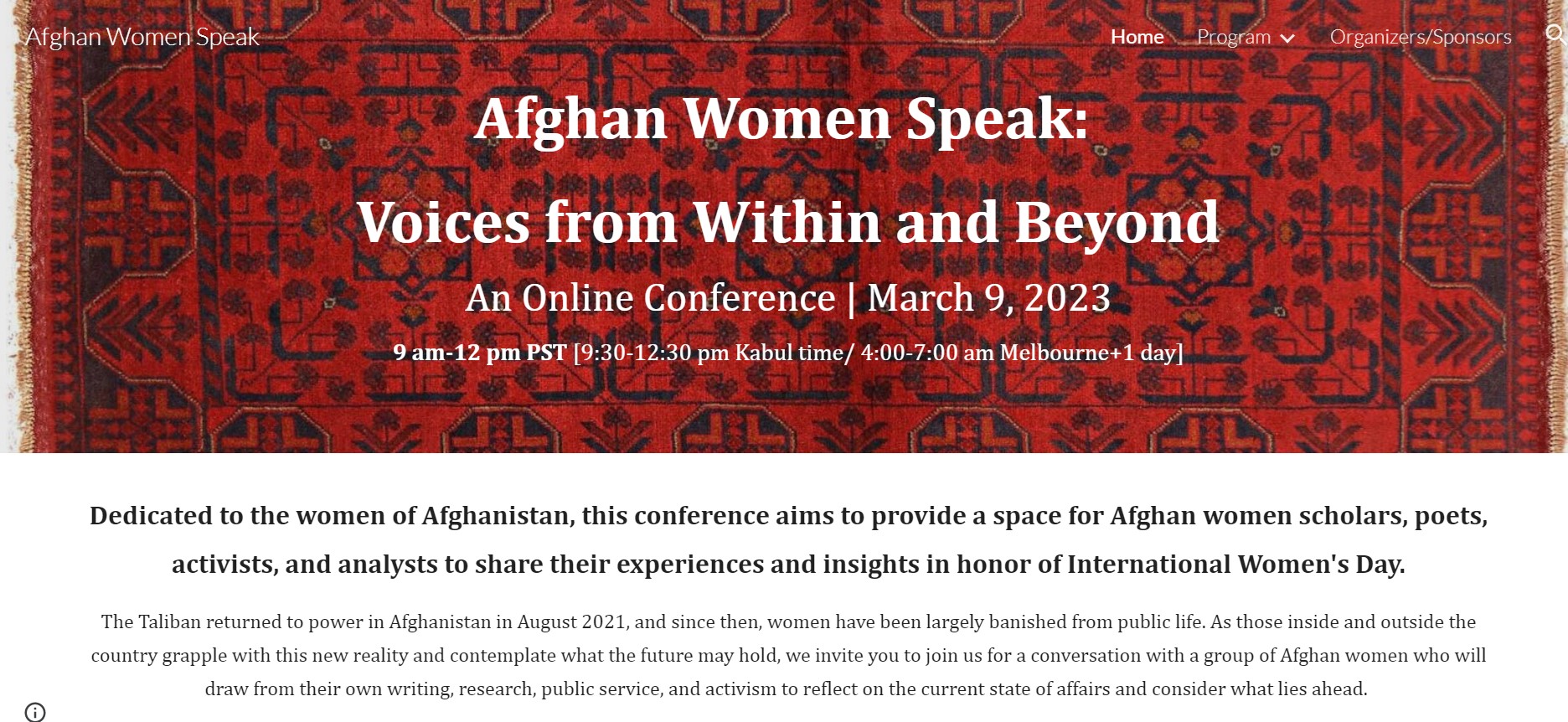
SIGLA: States and Institutions of Governance in Latin America Database
SIGLA (States and Institutions of Governance in Latin America, www.sigladata.org) is a multilingual digital database that freely provides information on legal and political institutions in Latin America. The beta version of SIGLA offers data on national-level institutions in Brazil, Colombia, and Mexico, as well as on international institutions. Ultimately, SIGLA will provide cross-nationally comparable, current and historical, qualitative and quantitative data on over 50 legal and political institutions in 20 Latin American countries in English, Spanish, and Portuguese.
Webinar on February 15: Ukraine Fights On: One Year Later! Episode no. 1
Note: Given the ever-changing situation in Ukraine, this event may be canceled or postponed on short notice.
At this webinar, held nearly one year after the full-scale Russian invasion of Ukraine began, women social activists and a lawyer from the SICH Human Rights Protection Group in Ukraine will provide updates on the current human rights situation and their documentation of the deliberate destruction of the civilian infrastructure in their country. The event includes a screening of the short documentary “Unbroken Women.” This event is the first in a three-part series about the Russia-Ukraine war and its impacts.
The event will be recorded for archival purposes.
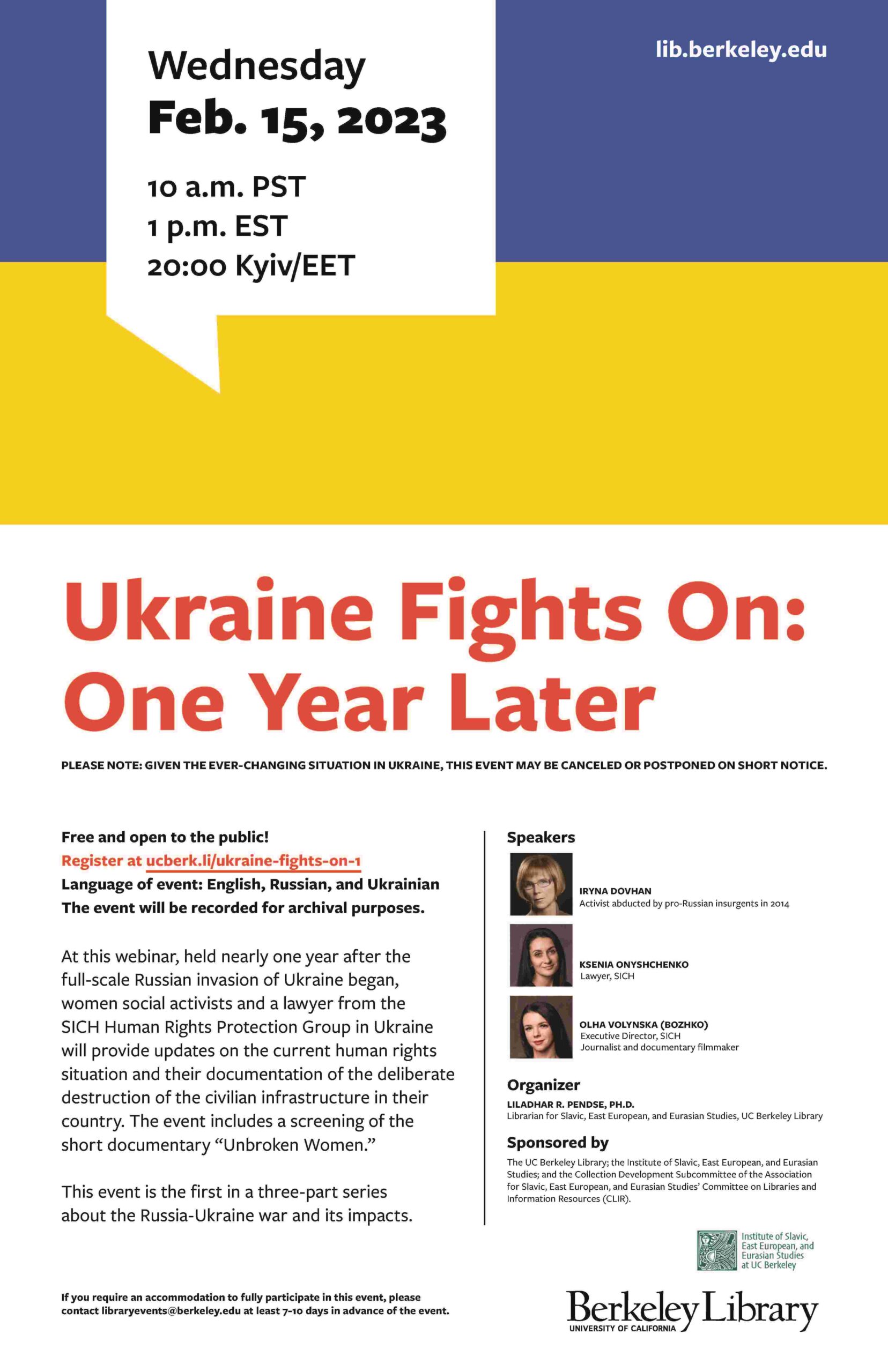
Post-Perestroika Newspapers accessible for the CRL Members
The Post-Perestroika Newspapers collection traces the evolution of post-Soviet Russia, with coverage from 1990 to 2016. Established soon before or soon after the collapse of the Soviet Union, the newspapers in this collection document the changes taking place in Russia, some with breathtaking speed, all the while embracing innovative journalistic methods and standards that were a far cry from the journalism of the Soviet period. These newspapers, some of which had a relatively short lifespan, nevertheless provide essential and critical insight into the events and personalities that defined post-Soviet Russian politics and history (Source:https://gpa.eastview.com/crl/ppn/).
To access these newspapers, please authenticate using the VPN or proxy from an off-campus location.
New Book by Darcy Grimaldo Grigsby
This book addresses the unique and profound indeterminacy of “Creole,” a label applied to white, black, and mixed-race persons born in French colonies during the nineteenth century.
“Creole” implies that the geography of one’s birth determines identity in ways that supersede race, language, nation, and social status. Paradoxically, the very capaciousness of the term engendered a perpetual search for visual signs of racial difference as well as a pretense to blindness about the intermingling of races in Creole society. Darcy Grimaldo Grigsby reconstructs the search for visual signs of racial difference among people whose genealogies were often repressed. She explores French representations of Creole subjects and representations by Creole artists in France, the Caribbean, and the Americas. To do justice to the complexity of Creole identity, Grigsby interrogates the myriad ways in which people defined themselves in relation to others. With close attention to the differences between Afro-Creole and Euro-Creole cultures and persons, Grigsby examines figures such as Théodore Chassériau, Guillaume Guillon-Lethière, Alexandre Dumas père, Édouard Manet, Edgar Degas, the models Joseph and Laure, Josephine Bonaparte, Jeanne Duval, and Adah Isaacs Menken.
Based on extensive archival research, Creole is an original and important examination of colonial identity. This essential study will be welcomed by specialists in nineteenth-century art history, French cultural history, the history of race, and transatlantic history more generally.
[from publisher’s site]
Darcy Grimaldo Grigsby is Richard and Rhoda Goldman Distinguished Professor in the Arts and Humanities at the University of California, Berkeley. She is the author of Enduring Truths: Sojourner’s Shadows and Substance; Colossal: Engineering the Suez Canal, Statue of Liberty, Eiffel Tower, and Panama Canal; and Extremities: Painting Empire in Post-Revolutionary France.
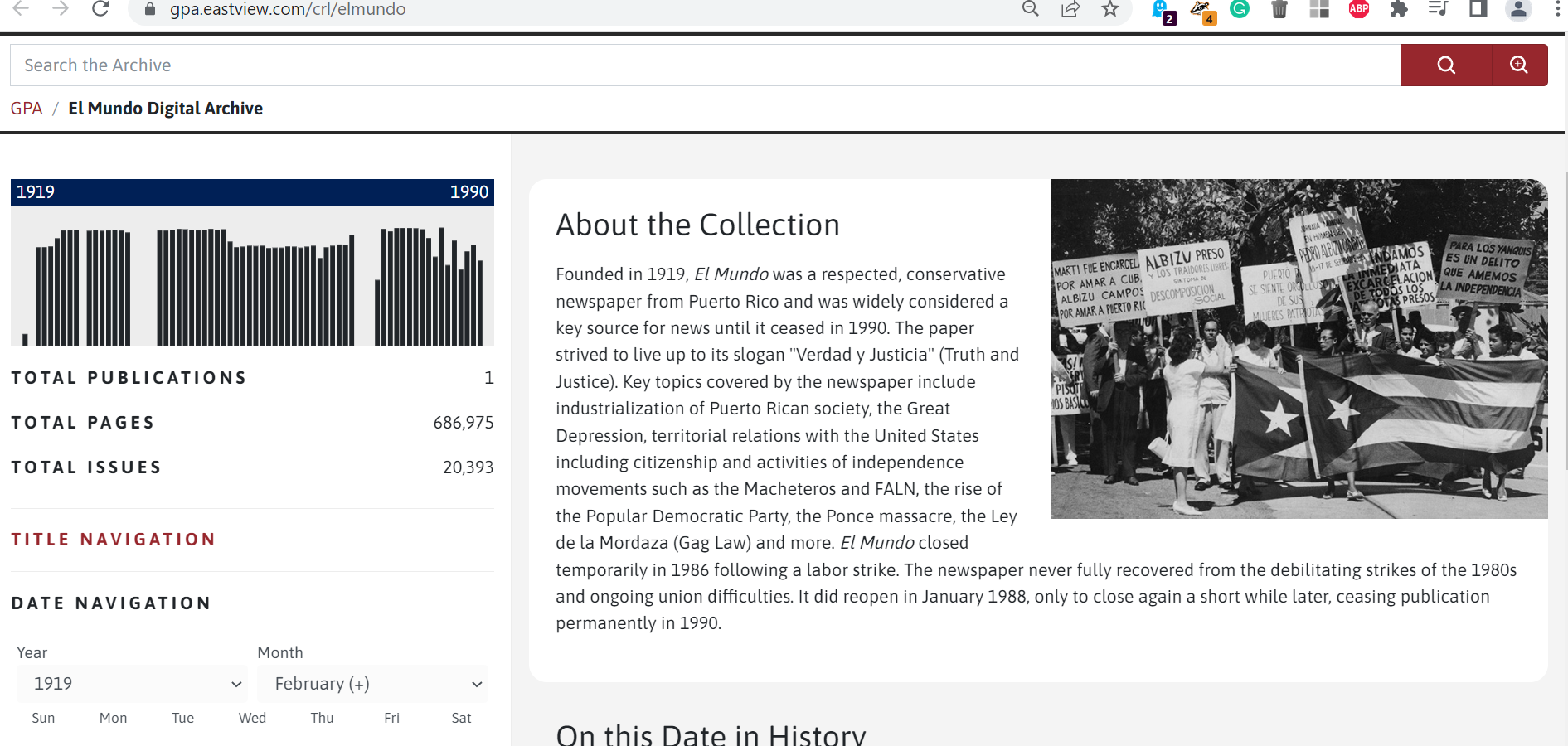

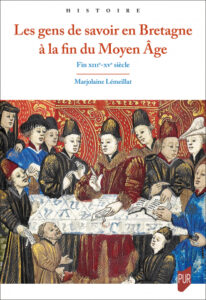
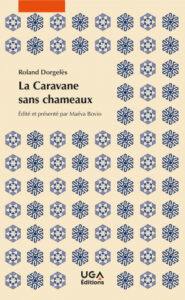
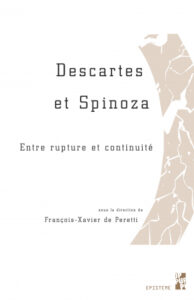
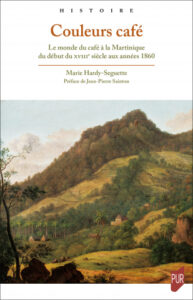
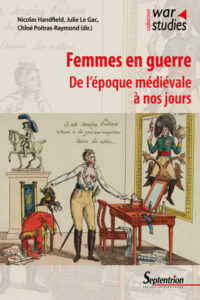
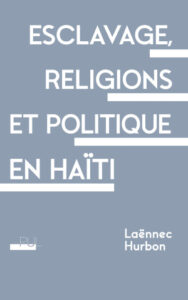
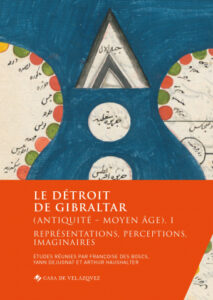
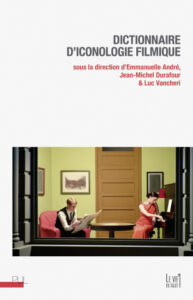
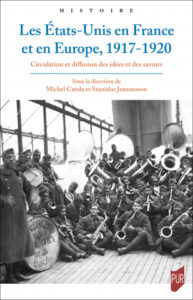
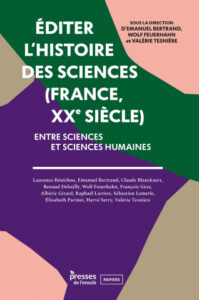
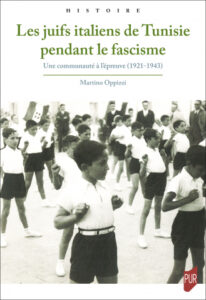
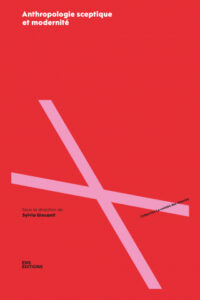
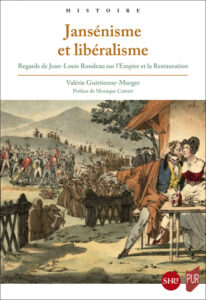
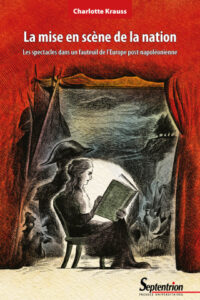
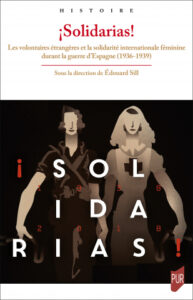
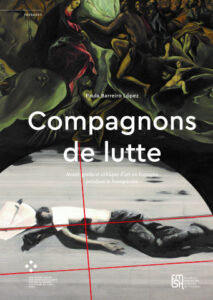
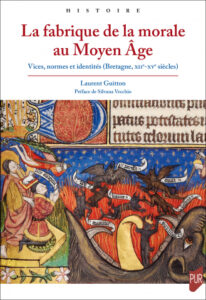
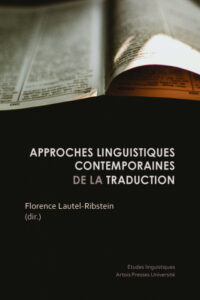
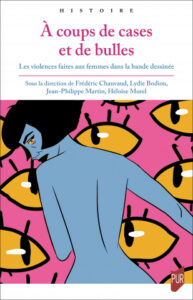
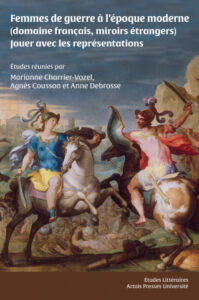
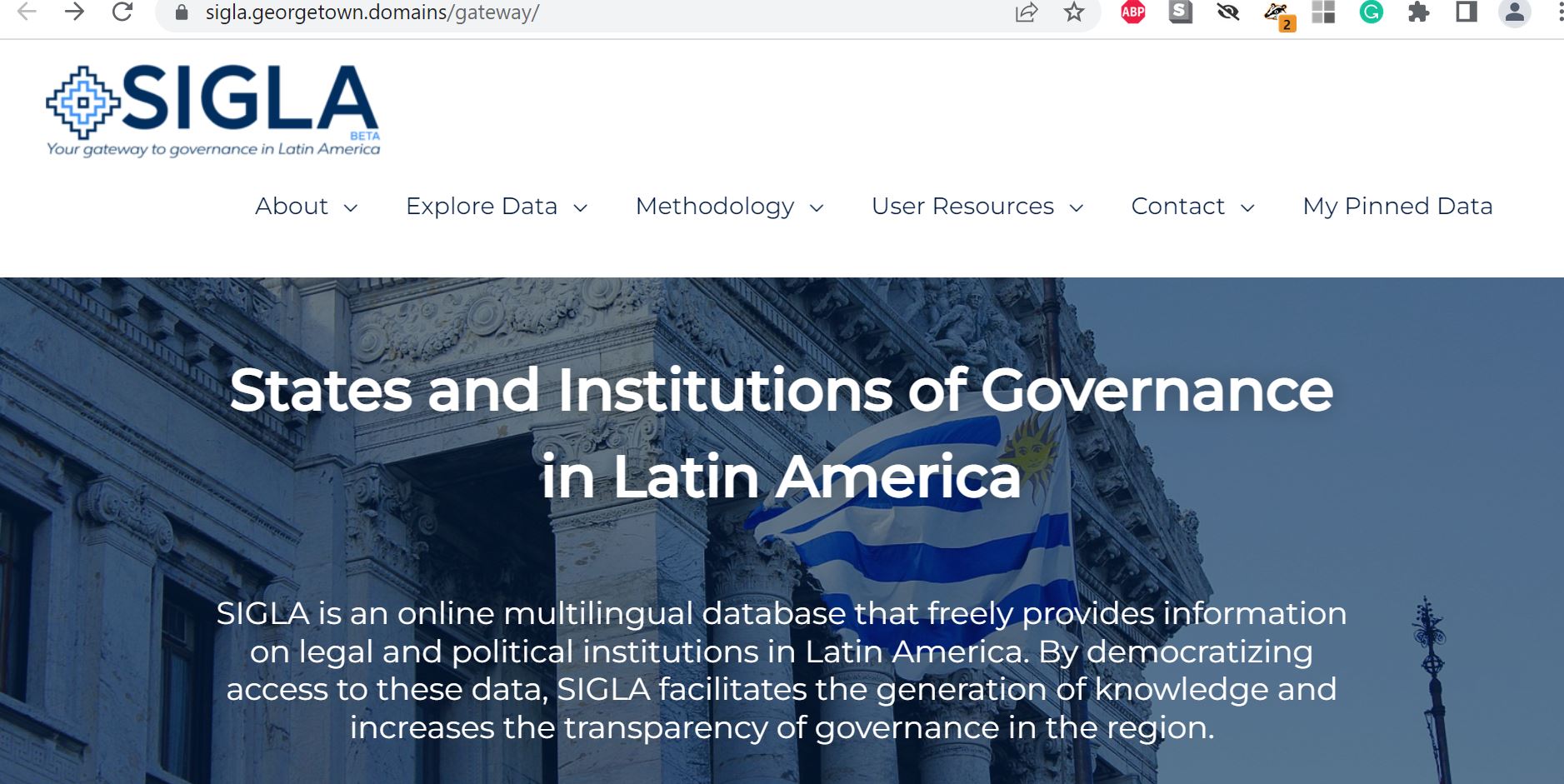
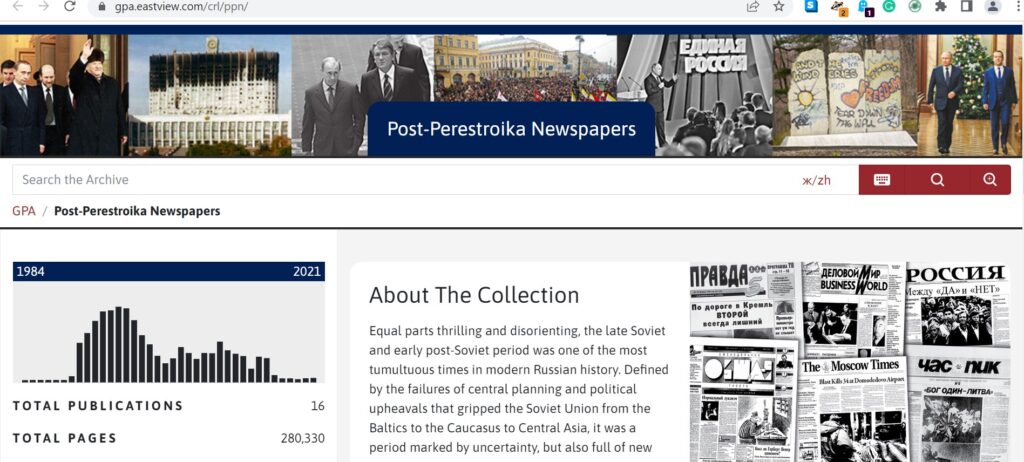
![Creole: Portraits of France’s Foreign Relations During the Long Nineteenth Century [book cover]](https://update.lib.berkeley.edu/wp-content/uploads/2023/01/CREOLE.jpg)